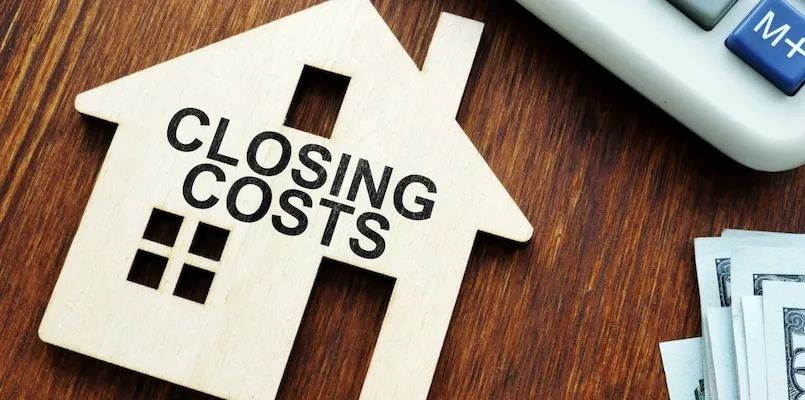
Understanding the Closing Costs When Selling Your Home
Selling a home involves more than just finding a buyer and signing the contract. Once the offer is accepted, sellers must prepare for the final step: closing. While closing day is the long-awaited moment when ownership officially transfers to the buyer, it’s also when sellers must settle a variety of fees and expenses known as closing costs.
In this guide, we’ll break down the essential closing costs sellers should budget for, helping you understand where your money is going and how to maximize your net profit.
Learn more about selling your home with MTX Realty here.
What Are Closing Costs?
Closing costs are the various fees and expenses associated with transferring ownership of a property. Both buyers and sellers have closing costs, but the types and amounts differ. For sellers, these costs are typically deducted from the proceeds of the home sale.
Closing costs can range from 1% to 3% of the sale price, depending on factors like the home’s location, the type of property, and local market conditions.
Common Closing Costs for Sellers
Here’s a closer look at the most common closing costs sellers should expect:
Real Estate Agent Commissions
Real estate commissions are usually the largest expense for sellers. The typical commission is 5% to 6% of the home’s sale price, split between the seller’s and buyer’s agents.
For example, if your home sells for $300,000 with a 6% commission, you’ll pay $18,000 in commissions.
Title Insurance
Title insurance protects the buyer and lender against potential title disputes or claims.
Sellers often cover the cost of the owner’s title insurance policy, which can range from $500 to $1,500, depending on the property’s value.
Transfer Taxes and Recording Fees
Transfer taxes are state and local taxes on the sale of the property.
Recording fees cover the cost of recording the property transfer with the local government.
These fees vary widely by location but can add up to hundreds or even thousands of dollars.
Homeowner Association (HOA) Fees
If your property is in a community governed by a homeowner association, you may need to pay prorated HOA dues or special assessments.
Sellers may also be responsible for providing a resale certificate, which outlines the property’s HOA status, fees, and rules.
Mortgage Payoff
If you still have a mortgage on the property, the balance will need to be paid off at closing.
Your lender will provide a payoff statement, which includes the remaining loan balance, interest, and any applicable fees.
Repairs and Concessions
If the buyer’s home inspection revealed issues that require repairs, you might need to cover those costs before closing.
Alternatively, you may agree to provide a seller concession—a financial credit to the buyer to cover repair expenses.
Attorney Fees
In some states, sellers are required to hire a real estate attorney to handle the closing process.
Attorney fees can range from $500 to $1,500, depending on the complexity of the transaction.
Escrow Fees
Escrow fees cover the cost of a neutral third party managing the closing process.
These fees are typically split between the buyer and seller and can range from $300 to $1,000.
Outstanding Property Taxes
If you owe property taxes, you’ll need to pay any outstanding balances before closing.
Property taxes are prorated based on the closing date, so you’ll only pay for the portion of the year you owned the home.
How to Estimate Your Closing Costs
To get a clear picture of your closing costs, request a net sheet from your real estate agent. This document provides an itemized estimate of all the expenses associated with selling your home, including commissions, taxes, and fees.
You can also use online calculators to get a rough estimate of your closing costs based on your home’s sale price and location.
Can You Negotiate Closing Costs?
Yes, some closing costs are negotiable. Here’s how to potentially lower your expenses:
Negotiate Agent Commissions: If you’re selling in a hot market, some agents may be willing to reduce their commission rates.
Request a Closing Cost Credit: In some cases, the buyer may agree to cover certain closing costs in exchange for a higher purchase price.
Shop Around for Title Insurance: You can choose your own title insurance provider and compare rates to get the best deal.
Ask About Discounts: Some closing companies offer discounts for veterans, first-time sellers, or repeat clients.
Tax Implications of Closing Costs
Some closing costs may be tax-deductible, potentially lowering your overall tax liability. These may include:
Mortgage interest paid as part of the payoff
Property taxes paid at closing
Certain attorney fees related to the sale
Consult a tax professional to determine which closing costs are deductible and how they may impact your tax return.
How to Prepare for Closing Day
Preparation is key to a smooth closing process. Here are some essential steps:
Review the Settlement Statement: This document provides a detailed breakdown of all closing costs, credits, and debits. Review it carefully for accuracy.
Confirm Payment Methods: Verify how you will pay your closing costs (e.g., cashier’s check, wire transfer) and ensure funds are available.
Complete Repairs: If you agreed to make repairs, provide documentation showing they’ve been completed.
Bring Necessary Documents: Bring a valid ID and any other required paperwork, such as your loan payoff statement or HOA clearance letter.
Bottom Line: Closing Costs Are Part of the Process
Selling a home is a major financial transaction, and closing costs are a necessary part of the process. While these expenses can be substantial, understanding what they cover and how to potentially reduce them can help you keep more of your sale proceeds.
At MTX Realty, we guide you through every step of the selling process, including understanding and managing closing costs. Want to learn more? Contact us today or call 888-565-1855 for expert guidance and support.
